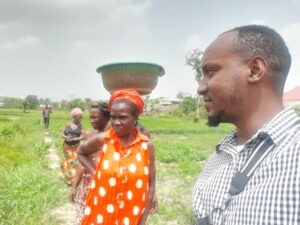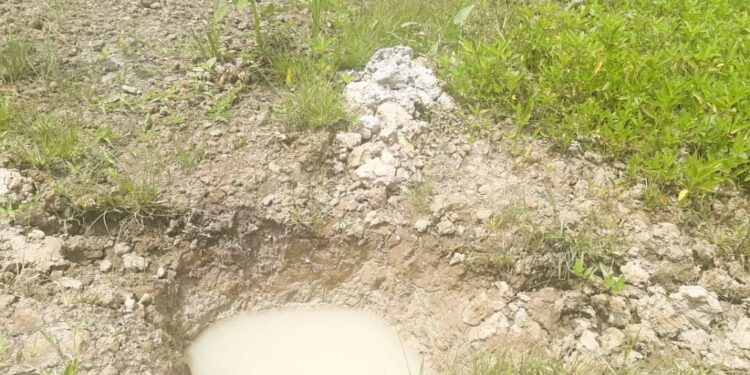Women are the most vulnerable in farming communities, and climate change is deepening the scars.
By Uzman Unis Bah
Kenema, Sierra Leone – Farming communities encounter challenges from the changing climate conditions of the universe; with change in the seasons, farmers face extreme difficulty in growing their crops, a threat to their living and the UN Sustainable Development Goals (SDG) 1 & 2, and a signal to all other goals.
Irrigation is our biggest challenge; with the alternate weather condition and lack of irrigation wells, our yield has dropped and our livelihood. Safiatu Bockarie, the leader of the Evergreen Farmers Association, said.
Safiatus explain that they use the swamps during the dry season to grow their crops, but even those are not standing the test of time, the weather gets hotter, the crops welt before maturation, causing labour and income loss.
Safiatu said 80% of the country is reliant on farming, and women need support to improve their livelihood and support their children to go to school.
Farming communities face the challenge of changing climate conditions; the dry season, farmers face extreme difficulty, and women are the most vulnerable in farming communities. Safiatus explains that their group comprises 75 women and 15 male farmers.
Miata Samba, the deputy Chairlady said, because of the harsh weather condition, there pay for irrigation rigs to be dogged, so that they can get water to irrigate their garden, and preserve their crops from perishing due to the scorching sun.
Salima Mahamoudou, a Research Associate at World Resources Institute said, recognising dryland, it is good to consider the common environmental impacts, but it is worth noting that some of the dryland impacts might not be as visible as others.
Amidst the bafflement, will sustainable diets address the impact of climate change in the agriculture sector?
According to the Food-based dietary guidelines of the Food and Agriculture Organization of the United Nations, “Sustainable diets are those diets with low environmental impacts which contribute to food and nutrition security and healthy life for present and future generations.”

“Sustainable diets are protective and respectful of biodiversity and ecosystems, culturally acceptable, accessible, economically fair and affordable; nutritionally adequate, safe and healthy; while natural and human resources.” The FAO Food-based dietary guidelines expound on the essence of sustainable diets.
The guideline identifies, “The need to shift to more sustainable diets and food systems are increasingly evident but certainly not simple to achieve. According to the definition by FAO, the sustainability of diets go beyond nutrition and environment as to include economic and socio-cultural dimensions.”
The FAO, Sustainable Diets and Biodiversity report states, “Sustainable diets can also contribute to the transition to nutrition-sensitive and climate-smart agriculture and nutrition-driven food systems.” A glimmer of hope; there is optimism that sustainable diets will scale down on the impact of climate change in maiming the agricultural sector.








